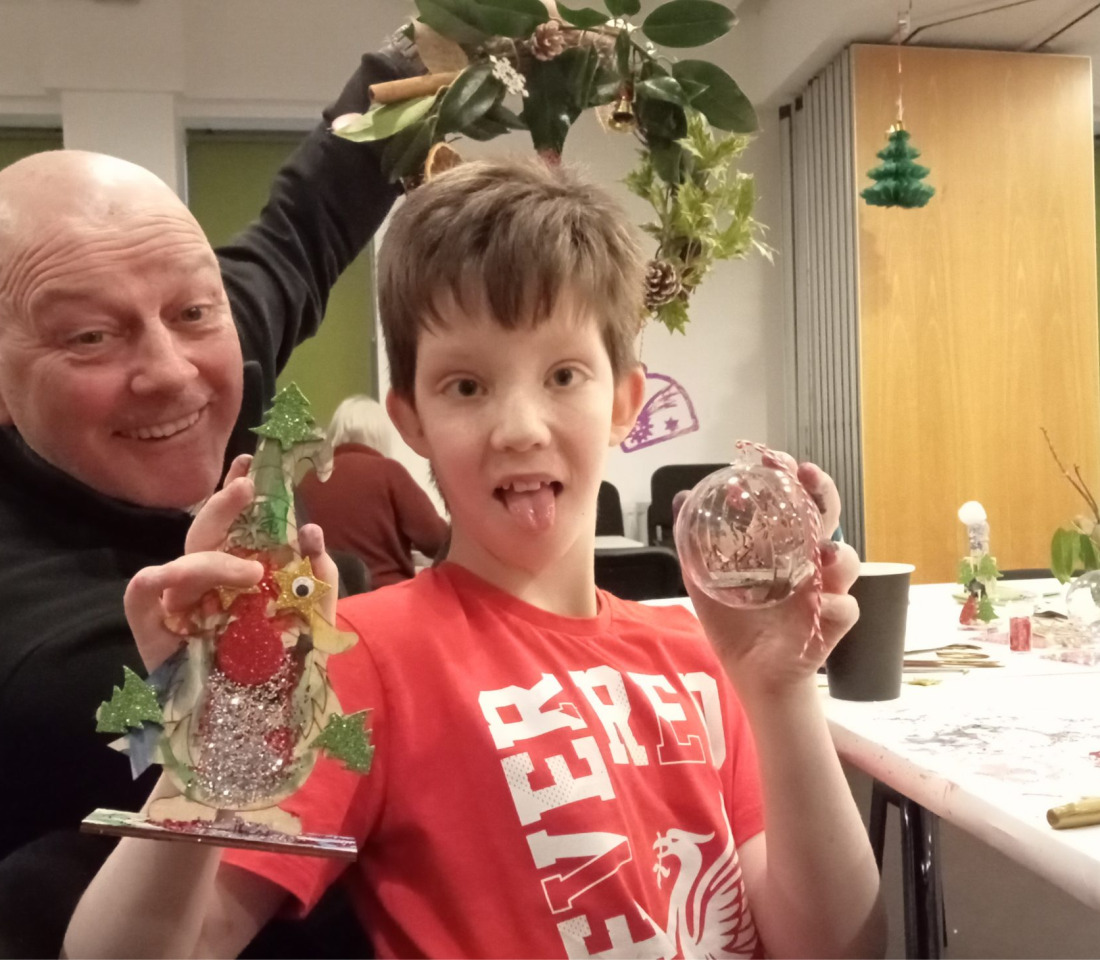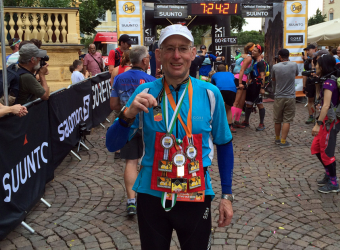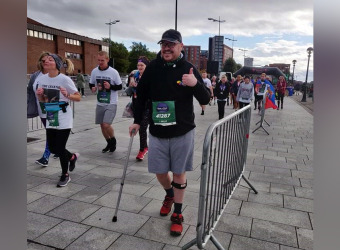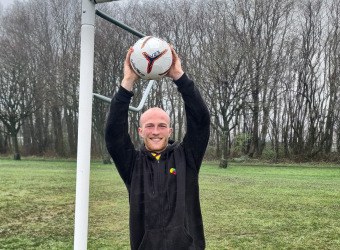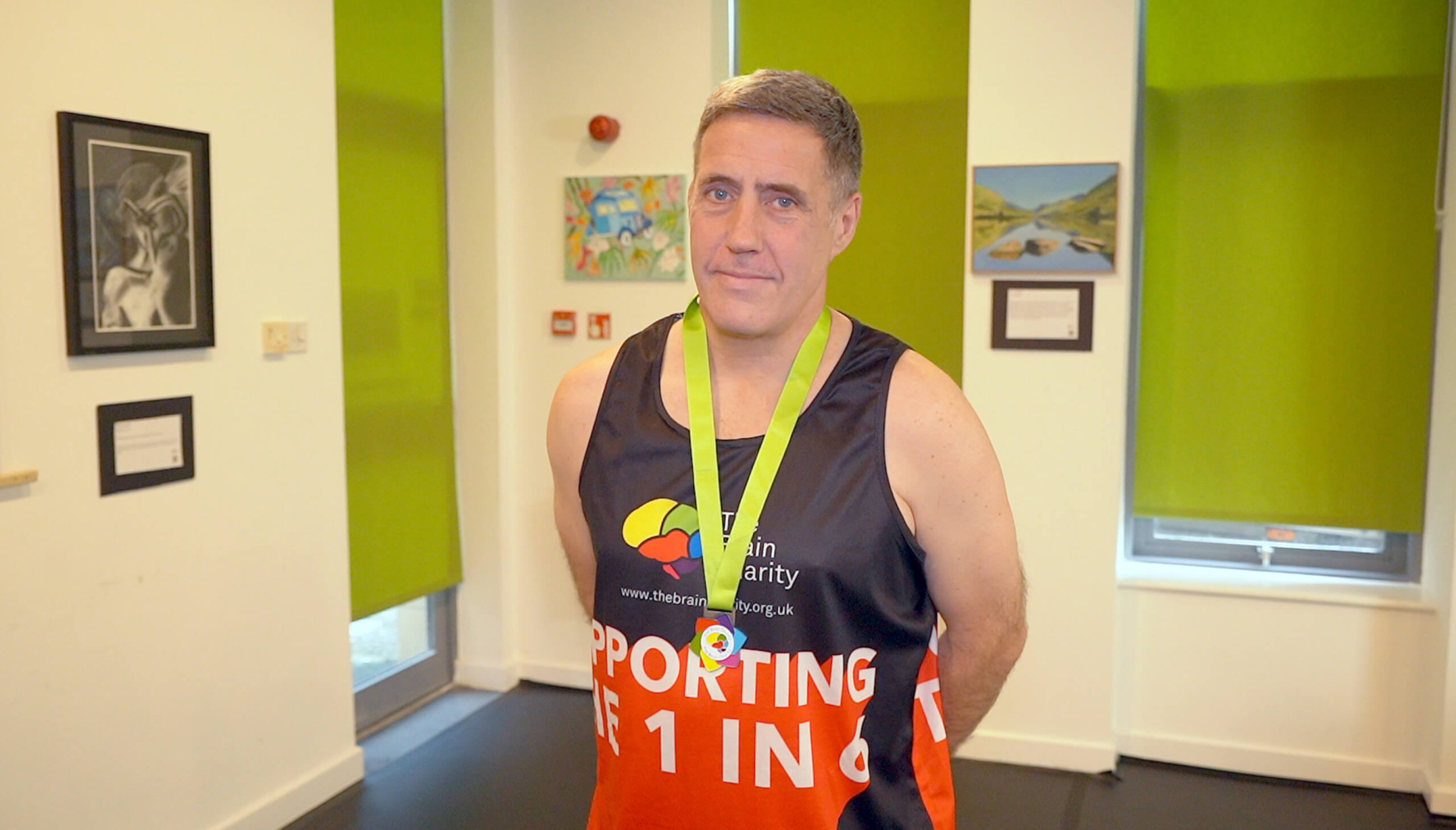
Runner who had to learn to walk again after brain injury credits exercise with his recovery
Neil spent a month in a coma - now he's running a 100-mile ultra marathon
A runner who had to learn to walk and talk again after a traumatic brain injury credits exercise with his recovery.
Neil Goulding, from Skelmersdale, suffered multiple bleeds on the brain after he hit his head on a kerb in 2005, aged 32.
The electrician underwent a craniotomy, where surgeons removed part of his skull and fitted a titanium plate in its place, and spent a month in a coma.
Against the odds, Neil recovered and learned to walk and talk again – although he still lives with the impact of his traumatic brain injury (TBI).
Neil, 51, said:
“I woke up in hospital with my family around me. I had no idea why I was there and didn’t recognise anyone or know where I was.
“My brain injury impacted on my life massively and my recovery took a long time.
“I had to learn to read, write, walk and talk again – as well as relearning my trade as an electrician.
“It also had a huge effect on me emotionally. I had anxiety and panic attacks and needed counselling.
“After my craniotomy, people would say things like ‘look at the state of him’ which knocked me sideways. I was very self-conscious.
“Even now, I don’t get short haircuts so that people can’t see the big scar on my head.”
As well as the physical side effects of traumatic brain injury, there can be many invisible symptoms which continue to affect people for many years or the rest of their lives.
In Neil’s case, he was left with some memory loss and finds he can sometimes misinterpret situations and get worked up unnecessarily.
The electrician also said he has been worried about facing judgement at work, choosing not to disclose his brain injury.
During his recovery, Neil used fitness to support his mental and physical recovery and joined a running club, Skelmersdale Boundary Harriers.
Since then, he has run half marathons, marathons and ultra marathons all over the world.
He said:
“I’ve always seen running as an outlet, and I’ve gained a lot of positives from it.
“It helps me get rid of the negatives after a bad day and has made me feel a lot happier within myself.
“Fitness gives you endorphins which make you feel positive. It’s had a massive positive effect on my life.”
In July, Neil decided to take on his first triathlon in aid of The Brain Charity, so he could support other people affected by brain injuries.
To date he has raised more than £850 to support us and is taking on a 100-mile ultra marathon in the Lake District this summer to raise more funds.
Neil added:
“I decided to fundraise for The Brain Charity because I don’t think there’s enough support for people who’ve had serious brain injuries.
“The Brain Charity is very important for people who have suffered serious head injuries, and I wanted to help other people who have been through what I’ve been through.
“I know not everyone recovers as well as I have and I’m very lucky, so it’s my way of giving something back.”
Categories: Fundraising, News
Published: 9 January 2025


